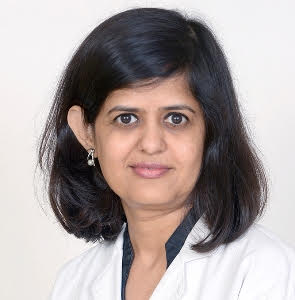Mom and I were recently watching a teleserial where someone got epileptic fits and the seizure was stopped when a bunch of keys was handed over to that person. Since then I have been wondering the significance of the treatment. We contacted Neurosurgeon from Max Pitampura Delhi, Dr. Sonal Gupta, who clarified several myths and issues related to the ailment, for our benefit.
What is Epilepsy? Epilepsy is the transient occurrence of symptoms or signs due to excessive abnormal neuronal activity in the brain are called fits/seizures. From a patient’s perspective, a commonly used definition of epilepsy is – two unprovoked seizures/fits more than 24 hours apart.
- Age: Epilepsy and seizures can develop in any person at any age. Seizures and epilepsy are more common in young children and older people. Epilepsy is the 4th most common neurological condition and epilepsy affects more than 65 million people worldwide.
- Causes of epilepsy may vary according to the age of the person. But what’s true for every age is that the cause is unknown for about half of everyone with epilepsy.
- Causes of epilepsy may span across the following:
- Genetic – One or more genes may cause epilepsy. The relationship between genes and seizures can be very complex and genetic testing is not available yet for many forms of epilepsy.
- Infections of the brain
- Head injury
- Stroke
- Brain tumors
- Metabolic disorders in the body causing encephalopathy.
- Young Children – may be born with structural changes in the brain.
- Young adults – Common causes of epilepsy are head injury and infections of the brain, which leaves behind scarring of the brain tissue which causes abnormal electrical activity.
- Middle age adults – Brain tumors and in elderly people stroke is the common cause of epilepsy.
- Heredity plays an important role in many cases of epilepsy. Those who do develop epilepsy may be more likely to have a history of seizures in their family. Generalized epilepsy is more likely to involve genetic factors than partial or focal epilepsy.
Myths: Even so, most brothers and sisters will not develop epilepsy. Epilepsy is more likely to occur in a brother or sister if the child with epilepsy has generalized seizures. Remember, epilepsy is not ‘contagious’ and people can’t ‘catch it’ like a cold, opposed to the belief in many patients that visit our hospital.
Dr. Gupta explains that often parents that most children of people with epilepsy do not develop seizures or epilepsy. However, since genes are passed down through families, it is possible.
Support groups and counseling sessions for patients help clear some important points like:
- The risk of passing epilepsy on to your children is usually low.
- Epilepsy shouldn’t be a reason not to have children.
- Medical testing may help people, who have a known genetic form of epilepsy, understand their risks.
- Most importantly, having seizures and epilepsy doesn’t mean you or your child are any different or less important than anyone else.
Also, in these counseling sessions, the doctors educate caregivers on how to manage patients with epilepsy. Dr. Gupta says that some things are normal in epilepsy and should not be given undue attention such as, during a seizure, the mouth gets clenched and salivary glands are stimulated which produces extra saliva and rapid mouth breathing during the seizure causes foaming of saliva at the mouth.
Since the patient is unconscious during an epileptic attack, placing onion or shoe near the nose or some metal in the hand or making him/her smell the same will not make any difference as the patient is unconscious or unaware. These are irrational beliefs. Such activities will not help at all.

 A Journalist Reveals Creativity, Sustainability and Spirituality – We reveal the unrevealed.
A Journalist Reveals Creativity, Sustainability and Spirituality – We reveal the unrevealed.


